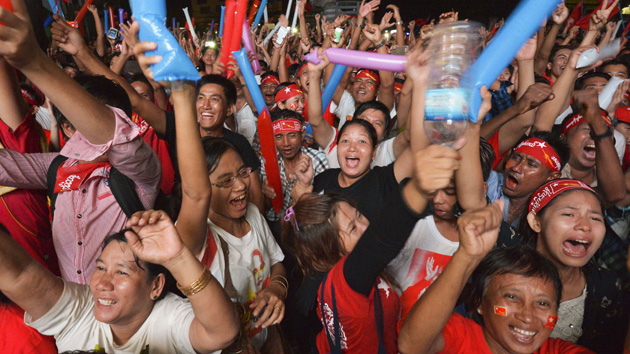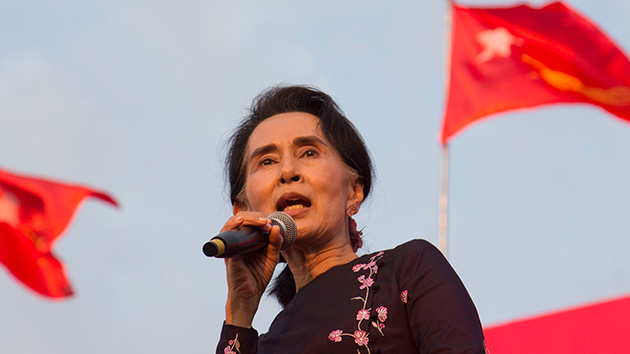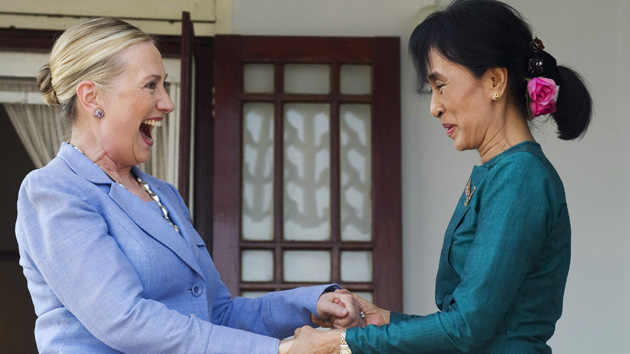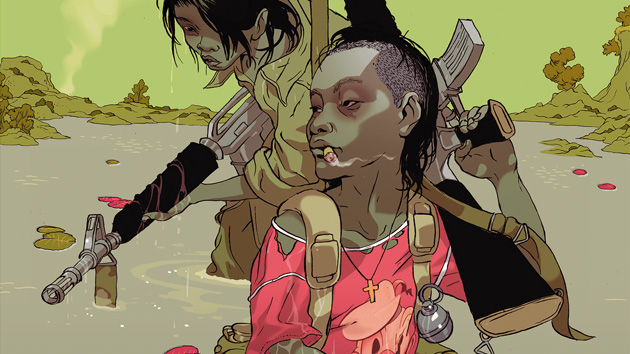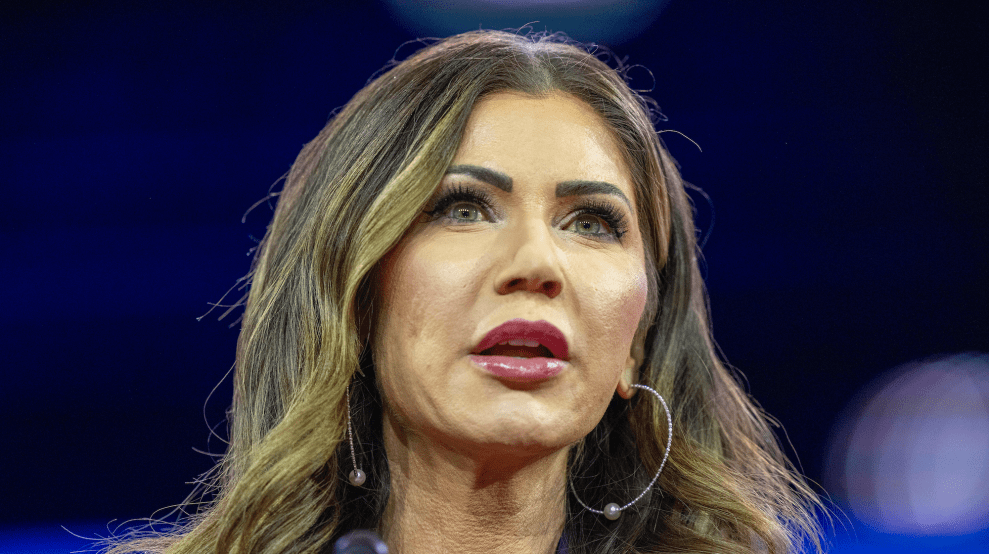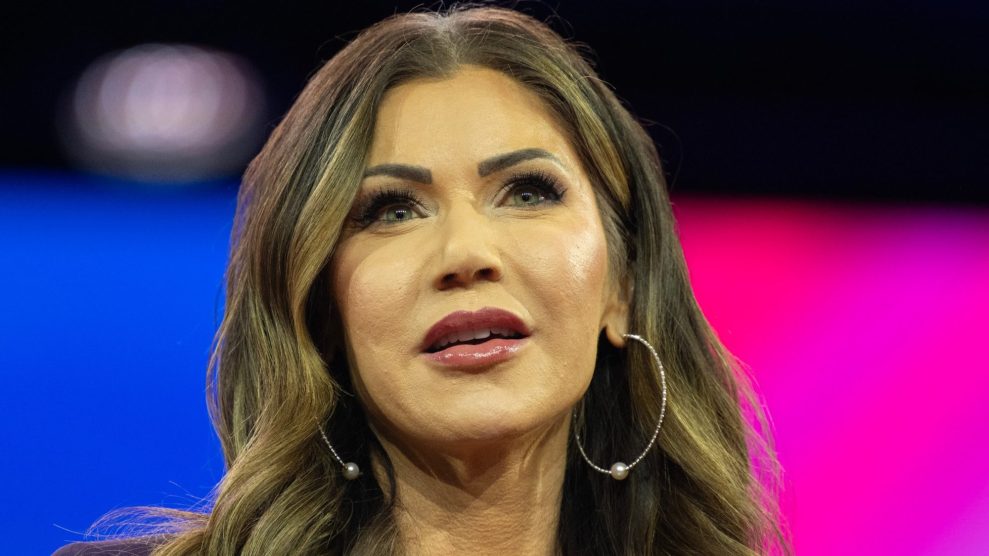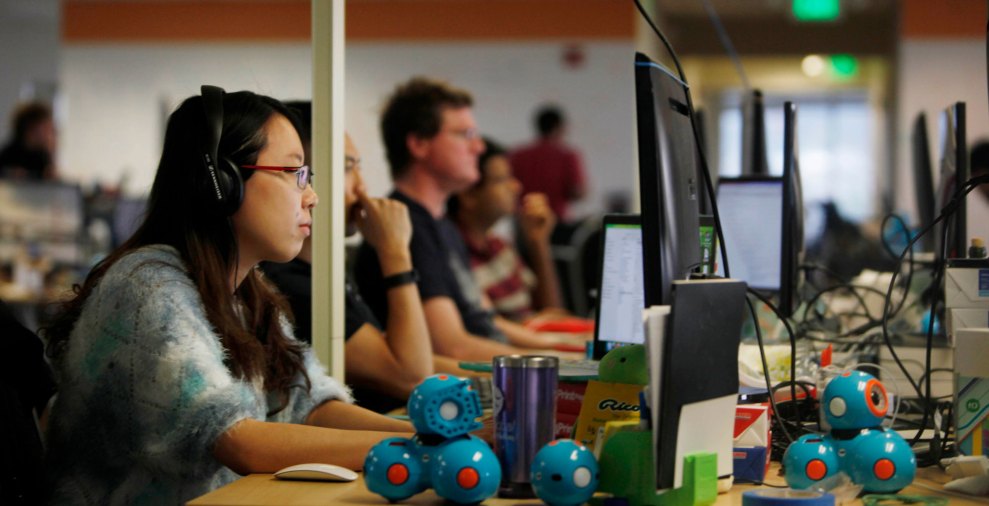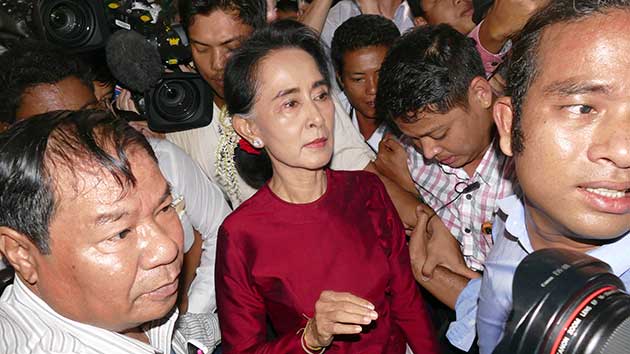
Aung San Suu Kyi, center, leaves after casting her ballot at a polling station in Burma on November 8. Khin Maung Win/AP
President Barack Obama and other world leaders are sending their congratulations to Burma, whose biggest pro-democracy party, led by Nobel Peace Prize laureate Aung San Suu Kyi, has won a landslide victory in the country’s first general election since a military dictatorship ended there four years ago. Suu Kyi’s party, the National League for Democracy (NLD), clinched enough seats in the national parliament to form the next government and choose the next president, which means that for the first time in more than half a century, Burmese citizens will have a hand in picking their leaders. It’s a moment for celebration, but the fight for democracy isn’t over yet. Here are three challenges Suu Kyi’s party now faces:
Forming a government: In 1990, the last time the NLD won a general election, the results were annulled by the then-ruling military dictatorship, which subsequently threw many of the party’s candidates in prison. Fortunately, the dictatorship ended in 2011, and leaders in Burma’s current government—dominated by former military generals—have congratulated Suu Kyi on her win this week while pledging to respect the results of the vote.
But the new parliament will not sit until early next year, and the new president likely won’t be inaugurated until March. That’s a lot of time for something to go wrong. “Nowhere else in the world is there such a gap between the end of the election and the forming of the new administration, and certainly it’s something about which we should all be concerned,” Suu Kyi told reporters last week at her lakeside residence in Rangoon.
Picking a president: Suu Kyi is Burma’s most popular politician, but she can’t become president. Before the dictatorship ended, the country’s military leaders wrote a constitution with a clause that makes Suu Kyi ineligible for the job because her late husband was British and her two sons hold foreign citizenship. Suu Kyi has vowed to get around this constitutional ban. Last week, she told reporters that she would lead the government in a position “above the president.” This week, she elaborated in an interview that the NLD would pick a president with “no authority” who would “act in accordance with the positions of the party.”
Dealing with the military: The NLD won a majority of contested parliamentary seats in the election, but not all parliamentary seats were up for grabs. In fact, thanks to the constitution, 25 percent of seats are reserved for unelected military representatives who hold veto power over constitutional amendments and have no interest in allowing Suu Kyi to become president. Asked about the military bloc in parliament during a press conference last week, Suu Kyi replied, “I don’t believe in unbreakable blocks, especially human ones.”
The constitution also gives the military control over the defense, border affairs, and home affairs ministries. And in a state of emergency, it allows a special military-led body to assume sweeping state powers. What’s more, the military continues to wage civil wars against ethnic minority groups in the countryside, and Suu Kyi will likely have little control to end these conflicts. “Burma will get democracy,” Aung Thein, a member of the NLD’s campaign committee, told me. “But we will have to work for many years.”

